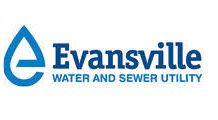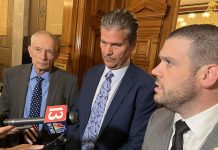Attorney General Curtis Hill today announced that Indiana reached an agreement in principle with Novo Nordisk, Inc. – a pharmaceutical company known for insulin manufacturing.
The signed agreement settles allegations that Novo Nordisk failed to comply with the Food and Drug Administration’s (FDA) required Risk Evaluation and Mitigation Strategies (REMS) for the company’s Type II diabetes medication Victoza.
When Victoza was approved in 2010, the FDA required REMS to lessen the potential risk of a rare form of cancer in humans who take the drug. The cancer is called Medullary Thyroid Carcinoma (MTC) and the REMS required that Novo Nordisk included information about Victoza and the potential risk of MTC to physicians.
Any failure to comply with the REMS such as failure to accurately communicate potential risks means the drug is misbranded, according to the law. Novo Nordisk’s failure to do so resulted in a $46.5 million settlement with the federal government and states to resolve claims under the False Claims Act. The penalty resolves allegations that Novo Nordisk submitted false claims from 2010 to 2014 to federal healthcare programs for Victoza by arming its salesforce with messages that could result in a false or misleading impression with physicians that the potential risk of MTC was irrelevant or unimportant by encouraging the use of Victoza and sale of it to patients who did not have Type II diabetes.
The federal government will receive $43,129,026 and state Medicaid programs will receive $3,320,963. Indiana Medicaid will receive $155,101.
The settlement resolves six lawsuits filed under the whistleblower provision of the federal FCA and the Indiana Medicaid FCA, which permit private parties to file suit on behalf of the federal government and the State for false claims and share in a portion of the government’s recovery.
A National Association of Medicaid Fraud Control Units Team participated in the settlement negotiations on behalf of the states and included representatives from the Offices of the Attorneys General, Medicaid Fraud Control Units for Texas California, Nevada, and Rhode Island in addition to Indiana.





